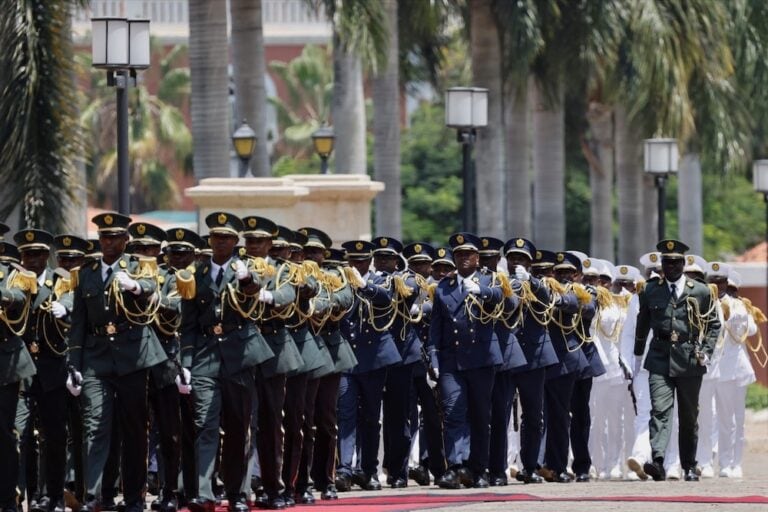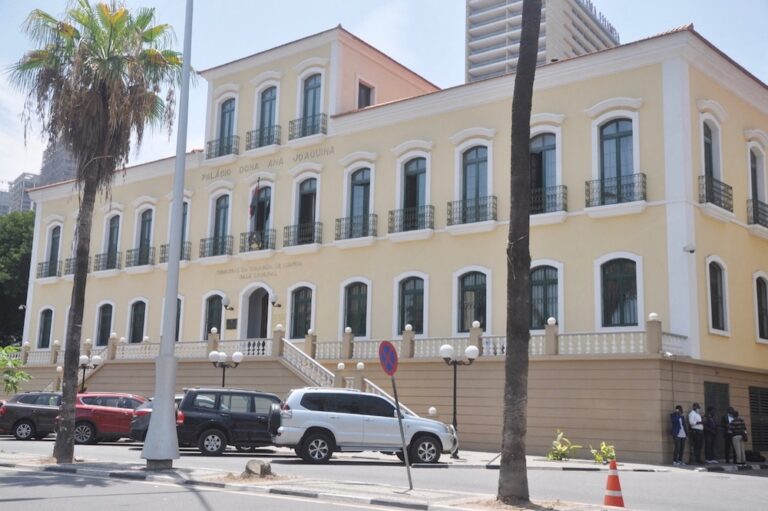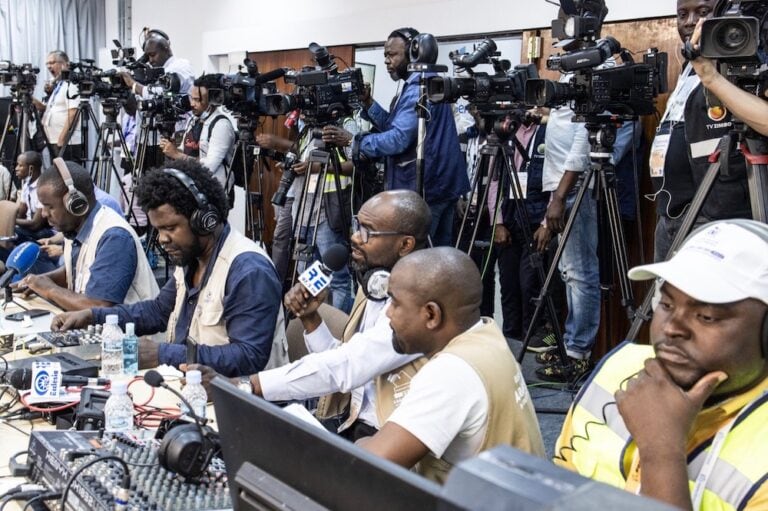(MISA/IFEX) – On Saturday 16 October 1999, journalist Rafael Marques, who is also the coordinator of the Angolan office of the Open Society Initiative in Southern Africa, was arrested at dawn at his home in the capital Luanda by officers from the Department of National Criminal Investigations (DNIC). **Updates IFEX alert of 18 October 1999** […]
(MISA/IFEX) – On Saturday 16 October 1999, journalist Rafael Marques, who is
also the coordinator of the Angolan office of the Open Society Initiative in
Southern Africa, was arrested at dawn at his home in the capital Luanda by
officers from the Department of National Criminal Investigations (DNIC).
**Updates IFEX alert of 18 October 1999**
Marques was being held at Luanda’s Labortorio prison. According to
information received from Human Rights Watch, Marques has been refused
access to his lawyer and has gone on hunger strike in protest. By the
morning of 18 October, Marques’ lawyer had still been unable to gain access
to him.
Marques was charged on 14 October with defaming President dos Santos, for
having referred to him as a dictator in a 3 July 1999 article published in
“Folha 8”. The article entitled, “The Big Stick of Dictatorship”, said that
dos Santos was “responsible for the destruction of the country and the
promotion of corruption”.
According to Human Rights Watch, Marques appears to have been charged under
a 1978 law (that was technically repealed in 1991) and the Angolan Press
Law. If convicted, he could be given a two to eight year prison sentence.
In an address by Angolan lawyer Maria Pereira to a Media Lawyers Conference
in Windhoek in August this year, Pereira pointed out that in terms of the
press law, defamation of the president was a criminal offence. The law
further gave no or very weak options for defence for the journalists accused
of defaming the president. According to Pereira, “Once the president claims
defamation, it is accepted that the facts have been proven.” As a result,
the only type of defence a journalist can put forward when faced with this
charge, is to prove that s/he was not the author of the article. This
situation exists only in the case of a claim of defamation against the
president of the republic, a foreign head of state or a representative of a
foreign head of state.
Recommended Action
Send appeals to the president:
journalist Marques
that
an integral part of democracy is that those who hold office in government
and who are responsible for public administration must always be open to
criticism
available
to counter alleged defamation such as media retraction, media statements,
and other options involving the right of reply
amounts to political censorship in that it seeks to punish him for
expressing his views about the government and the president in particular
international treaties and obligations which guarantee the right to freedom
of expression, including the International Covenant on Civil and Political
Rights, to which Angola is a signatory
Appeals To
Hon Jose Eduardo dos Santos
President of the People’s Republic of Angola
Fax: +244 2 392 733 / 391 476 / 331 898
Please copy appeals to the source if possible.


